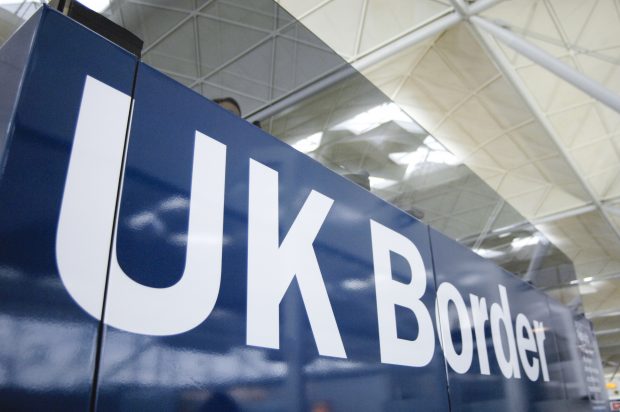Government promises new era of international enforcement, NGOs call for safe routes following more Channel deaths
The Government has announced that Martin Hewitt, CBE QPM, has been appointed as the head of the UK's newly established Border Security Command, a key initiative in the new government's efforts to tackle irregular migration. Hewitt is a former Chair of the National Police Chiefs' Council (NPCC) and has over 30 years of experience in law enforcement.
 Setting up the new Border Security Command was a key immigration policy pledge in the Labour Party's 2024 election manifesto, aimed at combating the small boat crossings in the English Channel and disrupting the criminal networks behind them.
Setting up the new Border Security Command was a key immigration policy pledge in the Labour Party's 2024 election manifesto, aimed at combating the small boat crossings in the English Channel and disrupting the criminal networks behind them.
In a press release issued by the Prime Minister's Office yesterday, the Government says the creation of the Border Security Command signals a shift in the UK's approach to border enforcement. Prime Minister Keir Starmer promised that Hewitt will lead a "new era of international enforcement" to dismantle the smuggling gangs and "bring order to the asylum system".
Home Secretary Yvette Cooper added: "Under this Government we have taken early action against the smuggler gangs including increasing British officers stationed at Europol and commencing recruitment of 100 specialist investigators to go after these criminal networks and their supply chains, including seizing boats and engines. With the Border Security Command we can go much further - building new law enforcement partnerships across Europe and getting new powers into place, to go after the gangs, tackle dangerous boat crossings and save lives."
According to Civil Service World, the role of Border Security Commander comes with a generous salary of up to £200,000 and a pension contribution of 27%.
For some background on the challenges the new Commander will face, see EIN's news article from July here.
Following the deaths of eight more people in the Channel this weekend, Amnesty International UK criticized the Government's approach, arguing safe routes were needed to stop the "appalling and avoidable" tragedies.
Amnesty International UK's Refugee and Migrant Rights Director, Steve Valdez-Symonds, said: "The Government's 'smash the gangs' slogan and its security-heavy approach is contributing to the death toll because the refusal to establish safe asylum routes means these flimsy vessels controlled by people smugglers are the only real option for desperate people fleeing persecution. Until UK ministers and their counterparts in France start sharing responsibility over the need for safe routes, we should expect this weekend's tragedy to keep repeating itself time and time again."
Enver Solomon, CEO of the Refugee Council, also said that enforcement alone is not the solution and called for a multi-pronged approach to reduce dangerous Channel crossings.
Solomon noted: "People are being forced into the arms of smugglers because they are desperate, fleeing violence and persecution in countries like Afghanistan, Syria and Sudan in search of safety. Smugglers will respond to tougher policing by making these refugees take bigger risks, with more perilous crossing points and more crowded boats.
"No plan to reduce the need for dangerous crossings, and stop the conveyor belt of tragedy, will be effective if it ignores why people want to cross and ignores the need to improve access to safe routes for those seeking safety. Effective and humane pathways for those seeking refuge is what will help undermine the smugglers' business model because it will reduce the need for dangerous crossings, and prevent further tragedies."